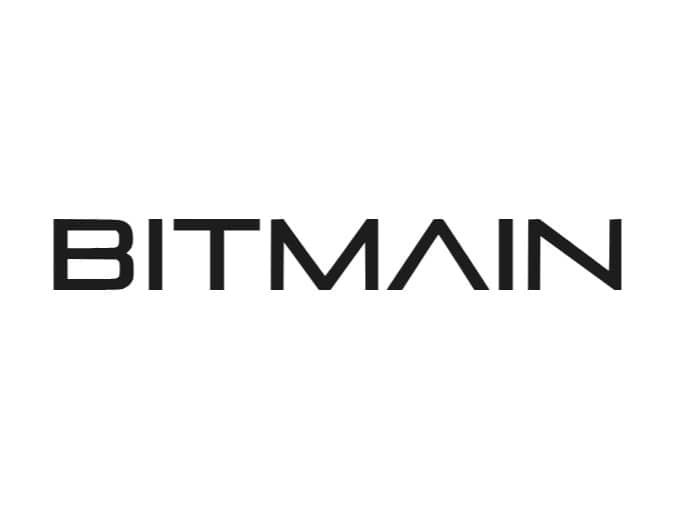订阅 wiki
Share wiki
Bookmark
Bitmain
0%
Bitmain
比特大陆科技有限公司 是一家成立于2013年的私营跨国公司,主要设计用于加密货币 挖矿的专用集成电路(ASIC)芯片。 该公司主要以其旗舰品牌蚂蚁矿机硬件以及运营全球最大的加密货币矿池之一Antpool而闻名。 [1] [2]
历史
比特大陆由詹克团和吴忌寒于2013年在中国北京创立。詹克团是技术负责人,设计了公司的第一款产品ANTMINER S1,于2013年11月发布。次年,该公司推出了Antpool,这项服务允许矿工集中计算资源,以增加他们获得挖矿奖励的机会。在2014年Mt. Gox交易所倒闭后,比特大陆的许多竞争对手倒闭,这使得该公司巩固了其市场地位。 [3] [2]
该公司在2017年加密货币牛市期间实现了显著增长,获得了5000万美元的A轮融资,并确立了其在ASIC制造业中的主导地位。到2018年,比特大陆已成为全球最大的加密货币挖矿ASIC设计商,占据了74.5%的市场份额。同年,它在B轮融资中筹集了超过7亿美元,估值达到145亿美元。然而,随后在香港证券交易所启动首次公开募股(IPO)的尝试因市场波动和监管不确定性而失败。该公司还面临财务困难,据报道,2018年第三季度亏损约5亿美元,并裁掉了很大一部分员工。 [4] [1]
从2019年到2021年,该公司卷入了两位联合创始人之间的公开权力斗争。这场纠纷于2021年1月结束,吴忌寒宣布辞去在比特大陆的职务。作为和解协议的一部分,云挖矿子公司Bitdeer和BTC.com矿池从比特大陆剥离,吴忌寒控制了新实体。2021年6月,在中国政府对加密货币挖矿进行监管打击后,比特大陆暂停了其矿机在全球的现货交付,以支持当地价格。 [2]
2025年1月,比特大陆的人工智能子公司算丰科技(Sophgo)被列入美国商务部的实体清单,限制其获取美国技术。2025年7月,比特大陆宣布了一项重大战略转变,计划在美国建立其第一家制造工厂,以更好地服务于其最大的市场并减轻地缘政治风险。到2025年末,该公司调整了销售策略,专注于将现有库存出售给亚洲的新投资者,通常与托管服务和复杂的融资安排捆绑在一起。 [1] [5] [6]
产品与技术
比特大陆的核心业务是设计和销售高性能硬件,并运营相关的挖矿服务。 [7]
ANTMINER ASIC 硬件
该公司的旗舰产品线是ANTMINER系列,该系列由ASIC矿机组成,专为挖掘各种加密货币而设计。这些设备专为高哈希率和能源效率而设计,能源效率是一个关键指标,以焦耳/太哈希 (J/T) 为单位衡量。 [3]
ANTMINER系列中的主要型号包括:
- Antminer S1 (2013): 该公司的第一款ASIC矿机,哈希率为每秒180千兆哈希 (GH/s)。 [2]
- Antminer S9 (2016): 一款极具影响力的型号,在哈希效率方面有了显著改进,并成为行业标准。 [3]
- Antminer E3 (2018): 一款ASIC矿机,专门为以太坊在过渡到权益证明之前使用的EtHash算法而设计。 [8]
- Antminer S15 & T15 (2018): 该公司首批基于7nm半导体工艺制造的矿机,专为SHA256算法而设计。 [8]
- Antminer S21 系列 (2024-2025): 最新一代矿机,采用先进的水冷技术来提高性能和效率。S21 XP型号可以达到270 TH/s,效率为13.5 J/T。 [7]
- Antminer S23 Hydro (2025): 一款旗舰级液冷型号,能够以9.5 J/T的能源效率提供580 TH/s。 [5]
比特大陆还生产用于其他算法的矿机,例如用于基于Scrypt的加密货币(如莱特币和狗狗币)的L11 HU2。 [7]
ANTSPACE 挖矿解决方案
为了支持大规模的挖矿业务,比特大陆提供了 ANTSPACE 产品线,该产品线由模块化和集装箱式数据中心解决方案组成。这些产品,例如水冷 ANTSPACE HW5 集装箱,专为快速部署而设计,可容纳数百个挖矿单元,并提供必要的电力和冷却基础设施。 [7]
矿池
比特大陆运营着蚂蚁矿池(Antpool),它是世界上最大的 比特币 挖矿 矿池之一。蚂蚁矿池于2014年推出,允许个体矿工贡献他们的哈希率到一个集体中,从而增加成功挖掘 区块 并分享奖励的可能性。在2021年至2024年间,据估计蚂蚁矿池挖掘了大约20%的 比特币 区块。历史上,比特大陆还运营着BTC.com,在它们的巅峰时期,这两个矿池加起来控制了比特币网络超过50%的总哈希率,引发了显著的中心化担忧。 [2] [3]
业务运营与战略
比特大陆在加密货币 挖矿领域一直占据主导地位,预计到2025年,其ASIC硬件市场份额将在70%到80%之间。该公司的战略不仅包括硬件制造,还包括构建一个综合服务生态系统来支持其客户。 [5]
相关实体和生态系统
比特大陆通过战略合作伙伴和关联公司网络运营,为挖矿行业提供一系列服务:
- ANTPOOL: 该公司的核心挖矿池服务。
- ANTALPHA: 一个数字资产金融服务平台,为机构挖矿业务提供融资和贷款。
- ANTSENTRY: 一个基于云的平台,用于管理和监控挖矿农场。
- BITFUFU: 一个提供云挖矿服务的战略合作伙伴,于2024年在纳斯达克公开上市。 [7] [2]
该生态系统使比特大陆能够促成大规模交易,例如其2025年向香港公司DL Holdings和International Business Settlement Holdings的销售,涉及可转换债券和通过Antalpha等实体管理的加密货币质押等复杂融资结构。 [6]
战略合作与全球运营
比特大陆与全球主要的挖矿公司合作。2024年9月,它宣布与Hut 8合作共同开发下一代液冷ASIC矿机。2025年,它与美国比特币公司达成了一项重要的部署协议,矿机提供的哈希率为约14 EH/s。该公司还通过其全球数据中心网络为其客户提供托管和运营支持,设施位于美国、巴拉圭和阿曼。 [2] [9] [10]
公司事务
创始人与领导层
比特大陆由詹克团和吴忌寒联合创立。吴忌寒在联合创办公司前是一名金融分析师,而詹克团为蚂蚁矿机设计提供了最初的技术专长。经过长期的权力斗争,吴忌寒于2021年离开了公司。截至2024年,詹克团担任比特大陆的首席执行官。其他主要人物包括公司全球业务负责人 Irene Gao。 [1] [5]
财务状况和首次公开募股尝试
比特大陆的财务表现与加密货币市场的波动密切相关。该公司2018年的IPO申请显示出显著增长,收入从2015年的1.373亿美元增长到2017年的25亿美元。仅在2018年上半年,它就录得28亿美元的收入和7.427亿美元的净利润。然而,当年晚些时候的市场低迷导致了巨额亏损。 [4]
该公司曾多次尝试进行首次公开募股,但均未成功。其2018年在香港证券交易所上市的申请于2019年3月失效,随后在美国提交IPO的尝试也未进行。 [1]
争议和法律问题
中心化问题
比特大陆一直面临来自加密货币社区关于挖矿权力中心化的持续批评。它在ASIC硬件市场的主导地位造成了对单一制造商的依赖,而这些设备对于工作量证明网络的安全至关重要。此外,Antpool(以及之前的BTC.com)控制的比特币网络哈希率的很大一部分,引发了对51%攻击可能性的担忧,即单个实体理论上可以扰乱网络。 [3] [2]
内部权力斗争
2019年至2021年间,联合创始人詹克团和吴忌寒为争夺公司控制权展开了一场备受瞩目的斗争。冲突涉及詹克团被驱逐,他通过在不同司法管辖区提起多起诉讼对此提出异议。这场斗争造成了严重的不稳定性,直到2021年1月达成和解。吴忌寒离职时表示,这场分歧已经*“以友好且更重要的是建设性的方式最终解决。”* [1] [2]
监管和法律纠纷
比特大陆曾卷入多起法律和监管挑战。
发现错误了吗?
